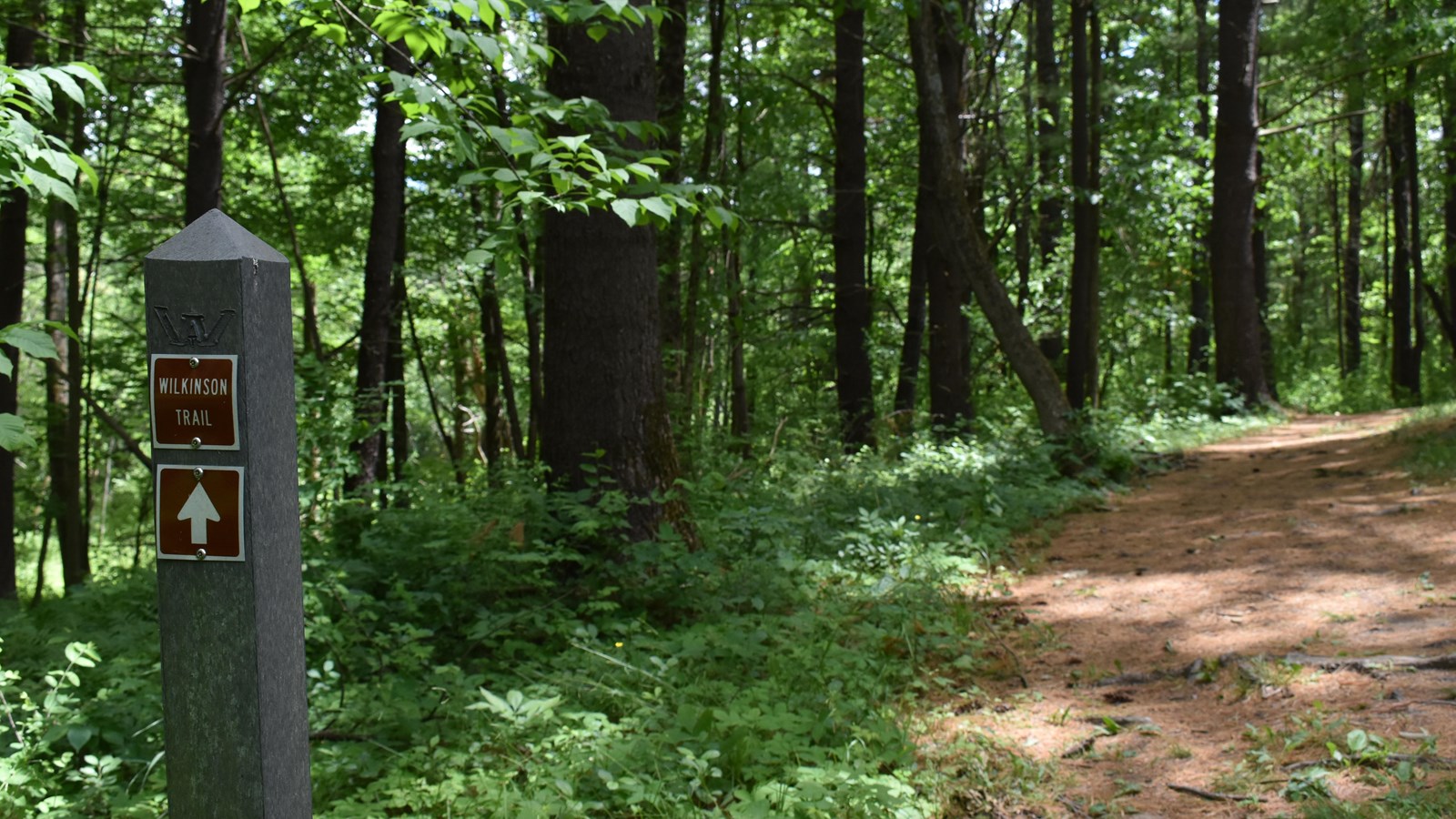Last updated: September 26, 2022
Place
Station I

NPS
While men volunteered or were required, by law or circumstances, to serve in the army, how did women contribute to the war effort? Why get involved at all? There were a variety of reasons.
As already mentioned, women camp followers were an essential part of both American and British armies in the 18th Century. Their work as nurses, and doing laundry and mending clothes, and scavenging for supplies, were all extremely valuable to the military.
At home however, when their husbands, sons or brothers went off to war, women were left to fend for themselves. In England and in America, military service could mean months and even years that a man would be away, leaving women to maintain homes, farms, families, and perhaps even businesses. They were then confronted with the realities of inflation, shortages, and threats to homes and towns.
Here in America, women's efforts were also greatly needed in the combined fronts of economy and politics. Listen to this poem that appeared in the Massachusetts Gazette in 1767 in attempts to persuade women to political patriotism:
"Young ladies in town and those that lived round. Let a friend, at this season, advise you. Since money's so scarce, and times growing worse, Strange things may soon hap and surprise you. First, then, throw aside your high topknots of pride, Wear none but your own country linen, Of economy boast...Let your pride be the most To show clothes of your own make and spinning."
This and other ventures followed the cues of Colonial leaders as they encouraged consumer boycotts of British goods. Self-sufficiency became both a political statement and an economic necessity.
What about stories like that of Deborah Sampson, who masqueraded as a man to join the Continental Army, or Molly Pitcher, who took her injured husband's place in a cannon crew?
These were very heroic but highly unusual exceptions. As a rule, women simply were not soldiers. They did, however sometimes provide crucial information for armies, and one young African-American teenager, named Phoebe Fraunces, may have actually saved George Washington by providing information about a plot against his life.
Despite the contributions women made to the Patriot cause during the Revolutionary War, the achievement of independence failed to bring a revolution in the rights of American females. For most women, the war's end in 1783 signaled a return to their customary duties within their families and households.
Although women gained little in the way of additional legal and political rights as a consequence of the struggle for independence, the American Revolution helped foster a female ideal that has become known as "republican motherhood."These women involved in the Revolution instilled in their children the virtues on which a republican form of government was believed to rest –wisdom, honestly, loyalty and a compassion for ones fellow citizens. They believed this was best achieved through education, which brought about an unprecedented emphasis on increasing the opportunities for female education during the postwar era.
Do you enjoy camping? Can you imagine being in rugged wilderness conditions for weeks at a time? With the American lines less than two miles away, how did it feel to be a solider or camp follower in the British army during those 16 days after the Battle of Freeman's Farm? Would you be anxious for action? Nervous? Exhausted from building fortifications? Homesick?
